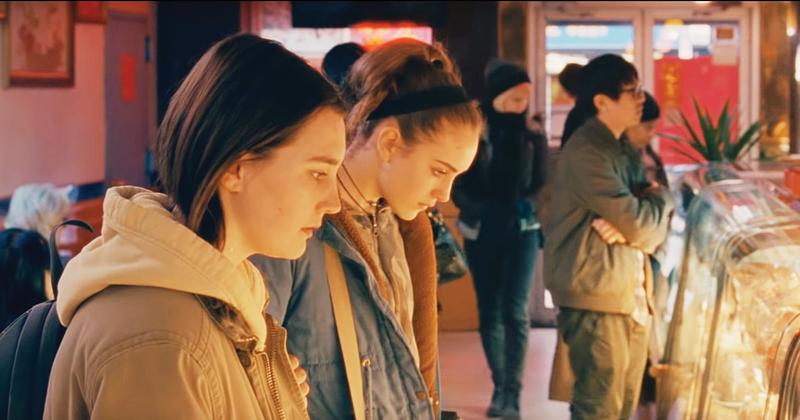 Eliza Hittman’s Never Really Sometimes Always shows two young women trying to find their feet in a world rife with sexism. (PHOTO PROVIDED TO CHINA DAILY)
Eliza Hittman’s Never Really Sometimes Always shows two young women trying to find their feet in a world rife with sexism. (PHOTO PROVIDED TO CHINA DAILY)
It’s been well documented that 2020 was a tough year for theaters and franchise movie-making, and that it was a stellar year for artists coloring outside the lines. It’s difficult to recall any other single year in recent memory that produced such a bumper crop of films that did what cinema does best: entertain as well as educate, provoke thought and broaden perspectives. With Hollywood AWOL last year, Hong Kong had its cinemas to itself until November, so there’s plenty to catch up with online as winter winds down.
And it seems that women have plenty to say these days — be it heartbreaking, infuriating or simply hilarious. Eliza Hittman’s Never Rarely Sometimes Always, Emerald Fennell’s Promising Young Woman, and Radha Blank’s The Forty-Year-Old Version, while dealing in subject matter that singularly or disproportionately impacts women, are glorious examples of why diversity is a good thing for art. It’s not an accident that each of the writer-directors made their material resonate beyond the central characters; to demonstrate how misogyny and racism can seep beyond those immediately affected — and how we let them get there to begin with.
 The wronged protagonist of Emerald Fennell’s Promising Young Woman returns with a mission to destroy toxic masculinity. (PHOTO PROVIDED TO CHINA DAILY)
The wronged protagonist of Emerald Fennell’s Promising Young Woman returns with a mission to destroy toxic masculinity. (PHOTO PROVIDED TO CHINA DAILY)
In Never Rarely Sometimes Always (***1/2), in small-town Pennsylvania 17-year-old Autumn (Sidney Flanigan) and her cousin Skylar (Talia Ryder) take a road trip to New York so that Autumn can terminate an unintentional pregnancy. In Promising Young Woman (***), Cassandra (Carey Mulligan) embarks on a dangerous, meticulous quest for revenge years after a rape. And struggling playwright Radha (Radha Blank) looks to reinvent herself as a “mature” rapper in The Forty-Year-Old Version (***1/2).
Admittedly, each of those films sounds like a heavy slog; a dose of miserablist cinema when we need it the least, but that couldn’t be further from reality. Yes, there’s a frustrated, often angry undercurrent to the material, but there’s also a tone of defiant resolve that makes each story about something much more than abortion, assault and appropriation.
 Radha Blank’s The Forty-Year-Old Version documents her own struggle to make it in a world dominated by racial and sexual politics. (PHOTO PROVIDED TO CHINA DAILY)
Radha Blank’s The Forty-Year-Old Version documents her own struggle to make it in a world dominated by racial and sexual politics. (PHOTO PROVIDED TO CHINA DAILY)
The real story in Never is the bond between Autumn and Skylar, illustrated by stellar, nuanced performances from Flanigan and Ryder, and their unspoken shared understanding of the confines they’re trapped within, to say nothing of the casual sexism surrounding them that they are unable to shake off. The centerpiece of the film is Autumn’s interview at the clinic, a single long take in increasingly tight close-up, as she answers a series of questions as per the phrases of the title. It says all we need to know about her life.
Conversely, Mulligan’s messy Cassandra has her big moment near the beginning of Promising, when she stops at a construction site to stare down some harassers. The speed with which cocky catcalls turn to indignant slurs is head-spinning, and it elegantly sets up Cassandra’s plot to exact revenge for an assault as well as paint a vivid portrait of the toxic culture that breeds assaults.
Finally, Blank’s road to a true artistic voice in Version is paved with all manner of witty, frequently uproarious asides about who gets to create art and how, as well as questions of whitewashing, relevance and selling out. Shot in rich black-and-white and possessed of scrappy authenticity, Blank’s specificity makes her professional struggle universally recognizable.


